Where Is The Kew Gardens, Queens, Apartment House Where Kitty Genovese Died
Edward VI, Mary I and Elizabeth I
Edward VI, Mary I and Elizabeth I
All three of Henry VIII's legitimate children – Mary, Elizabeth and Edward – became queens or kings of England. They played an important role in both British history and the history of the royal palaces. However, none of them had children themselves, and on Elizabeth's death, the Tudor dynasty ended.
Mary, born in 1516, was the only surviving child of King Henry VIII's 24-year marriage to Katherine of Aragon. Seventeen years later, Elizabeth was born to Henry and his second wife Anne Boleyn, in 1533. Henry's third queen Jane Seymour gave him his long-awaited male heir, Edward, in 1537.
Henry also had an illegitimate son, named Henry Fitzroy (meaning 'son of the king'), born in June 1519. In 1524, aged 6, the King made Fitzroy Duke of Richmond, and ensured he was well provided for. Fitzroy enjoyed a 'prince's life' until his premature death at 17, probably from tuberculosis.
Header: Detail of The Family of King Henry VIII, Royal Collection Trust/© Her Majesty Queen Elizabeth II 2017
Did you know?
Henry Fitzroy's mother was the attractive 'girl-about-court' Bessie Blount, and the King acknowledged their handsome, healthy boy publicly, much to the Queen's distress.
Edward, who became Edward VI, was born and christened at Hampton Court Palace, and grew up there surrounded by luxury.
As Mary I, Henry's elder daughter received a proposal of marriage at the palace in 1554, and it was there that the English and Spanish courts gathered to await the arrival of her child in 1555, although the baby never came, her swollen belly the result of a phantom pregnancy.
Elizabeth I was fond of Hampton Court and is said to have had constructed a marvellous 'paradise room' there, decorated with precious metals and gems to impress visitors. The Queen was also fond of a joke, and installed a fountain at the palace that squirted water at anyone standing nearby. In 1570 Elizabeth had a new Privy Kitchen built at the palace, which today houses a visitor café. The Queen also loved the gardens at the palace, where on cold mornings she liked to march about vigorously!
Aerial view of Hampton Court Palace, looking down into Base Court.
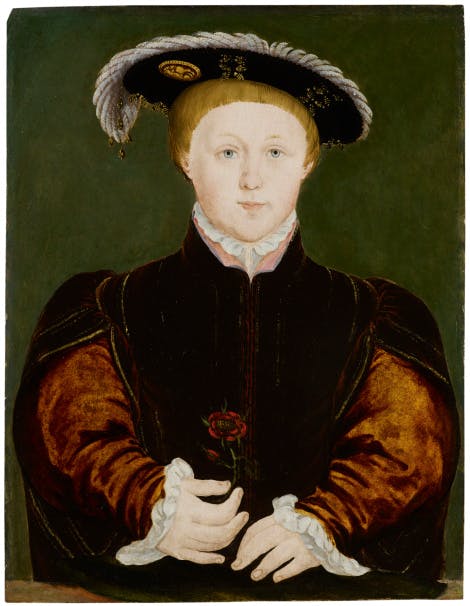
Edward VI, born 1537, reigned 1547-53
Edward, born and christened at Hampton Court Palace was the eagerly-awaited son of Henry VIII and his third wife, Jane Seymour. Henry is said to have wept with joy as he held his infant son, then wept again a few days later when the queen died from post-birth complications. As a little boy Edward was spoiled and indulged, he even had his own fighting bears.
Edward was extremely well educated by a set of forward-thinking Cambridge scholars, who instilled in the prince a desire for religious reform. Even before he was 10, Edward was, apparently, fairly fluent in Latin, Greek and French.
Edward VI after Hans Holbein the Younger c1542, © National Portrait Gallery, London

'The duke …had his head cut off upon Tower hill, between eight and nine o'clock this morning'
Entry in Edward's journal, coolly recording the death of his uncle, Edward Seymour. Royal Collection Trust/© Her Majesty Queen Elizabeth II 2017
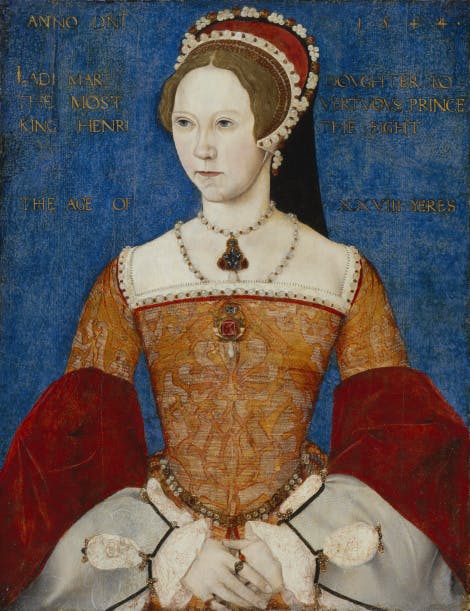
Mary I, born 1516, reigned 1553-58
Mary Tudor was the only surviving child of King Henry VIII's 24-year marriage to Katherine of Aragon.
Reportedly pretty and privileged, she received a scholarly education, partly directed by her staunchly Catholic mother.
When Henry divorced Katherine, Princess Mary's royal future looked doubtful, and she was demoted to the status of 'lady', no longer a princess.
When her younger brother became king, Mary became a focus for conservative and catholic opposition to the reforming protestant ideas of Edward VI and his ministers.
Queen Mary I by Master John, 1544, © National Portrait Gallery, London

'While my father lives I shall only be the Lady Mary, the most unhappy lady in Christendom'.
Princess Mary, complaining that her father Henry VIII had not managed to find her a husband, because of the constantly changing politics of the last years of his reign. © National Portrait Gallery, London

Elizabeth I, born 1533, reigned 1558-1603
Elizabeth was the only daughter of Henry VIII and his second wife, Anne Boleyn.
After the execution of her mother on charges of adultery and treason when Elizabeth was only 2, the little princess found her royal status threatened.
In the later years of Henry VIII's reign, his three children were all once again included in the succession, and so – eventually – Elizabeth became queen after both her brother Edward and her sister Mary died childless.
Portrait of Princess Elizabeth, c.1546. Attributed to William Scrots (active 1537-53), Royal Collection Trust/© Her Majesty Queen Elizabeth II 2017
- Historic Royal Palaces
- Tower of London
- Tudor
- Palace
- Henry's children
- Kings and queens
- Henry VIII
- Henry's wives
- Life at Court
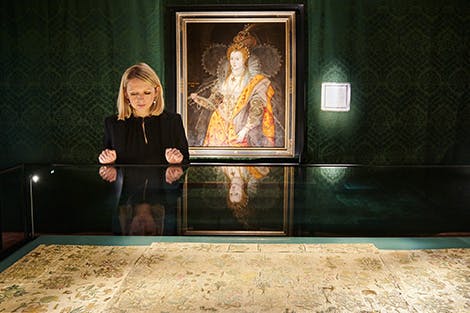
Things to see
The Lost Dress of Elizabeth I
See the Bacton Altar Cloth, a rare survival of Elizabethan dress worn by Elizabeth I, and the iconic Rainbow Portrait at Hampton Court Palace.
Closed
Hampton Court Palace
Included in palace admission (members go free)

Things to see
Chapel Royal
Walk in the footsteps of kings and queens at the Chapel Royal, which has been in continuous use for almost 500 years.
Open Wednesday - Saturday
Hampton Court Palace
Included in palace admission (members go free)
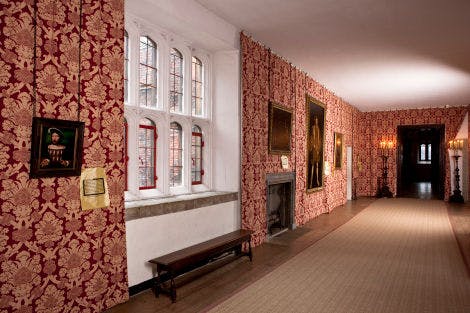
Things to see
Haunted Gallery and Processional Route
Walk Henry VIII's route from his private apartments to the Chapel and see the infamous Haunted Gallery in the State Apartments.
Open
Hampton Court Palace
Included in palace admission (members go free)
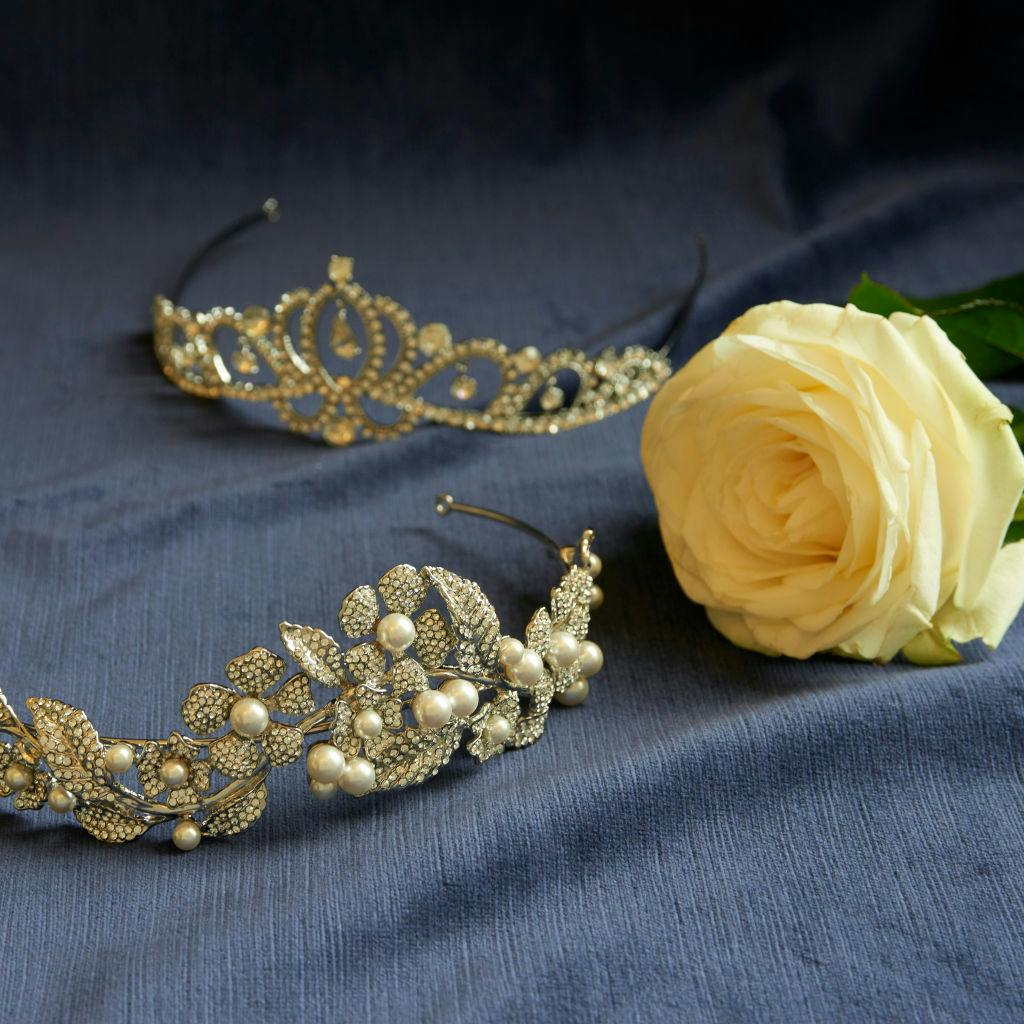
Shop jewellery
Choose from our stunning collection of jewellery, including pieces inspired by the palaces and the people who lived in them. These beautiful collections include necklaces, rings, earrings, charm bracelets, bangles and pendants.
From £14.99
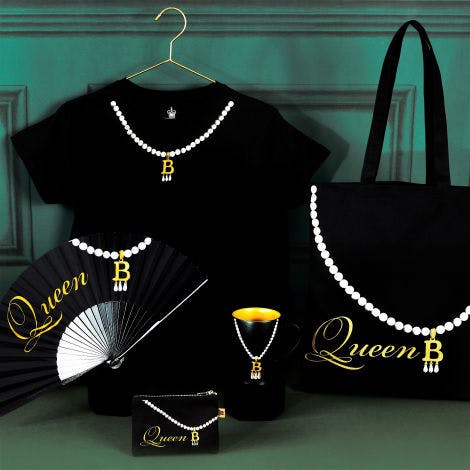
Shop Anne Boleyn gifts
Discover our unique collection of Anne Boleyn books, jewellery and gifts, including her 'B' necklace which you can personalise with your chosen initial.
From £9.99

Shop homewares
In our home section you will find stylish lifestyle home accessories and furnishings, including cushions, tapestries, ornaments and much more which will add those finishing touches to make your room complete.
From £9.99
Where Is The Kew Gardens, Queens, Apartment House Where Kitty Genovese Died
Source: https://www.hrp.org.uk/hampton-court-palace/history-and-stories/henry-viiis-children/
Posted by: chentropir.blogspot.com

0 Response to "Where Is The Kew Gardens, Queens, Apartment House Where Kitty Genovese Died"
Post a Comment